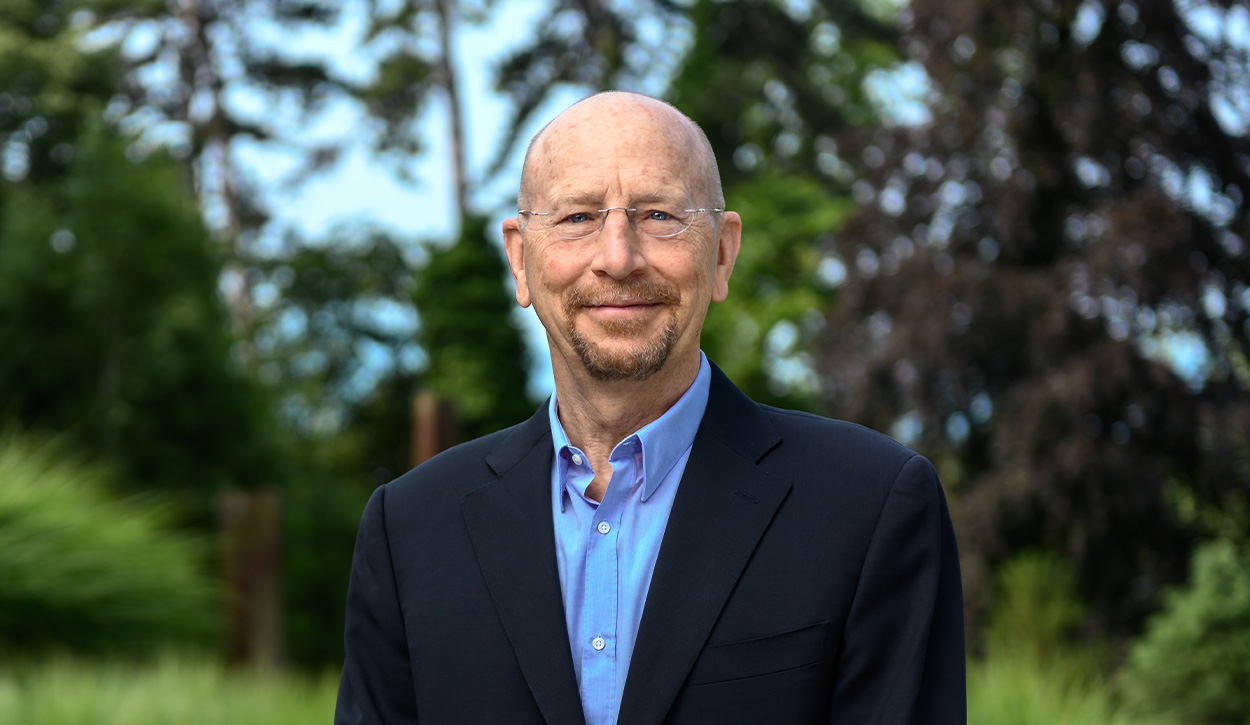
Will Elon Musk’s narcissism be his downfall?
“How would you run a whole economy without oil?”
“If you could convert an entire country to electric cars…you could get a solution.
“We are looking at the emergence of Car 2.0, a whole new market, a whole new business model.”
“We have to make the right moral decision and we have to make it immediately. Because if we don’t, we will have lost our economy right after we’ve lost our morality.”
If you were thinking that the above comments came from Elon Musk, CEO of Telsa, you would be wrong. Those quotes are from a February 2009 TED Talk by Shai Agassi, then CEO of Better Place.
Agassi, an Israeli citizen, founded Better Place in 2007 with $200 million from enthusiastic investors. His mission was clear: to change the world by creating a new business model for electric vehicles. Just like Musk, he was extremely charismatic and told a compelling story. He started better place essentially as a side project while he was a young executive board member with Germany’s SAP, where he was on a track to become CEO. But Better Place became Agassi’s calling following a conversation with Israeli President Shimon Peres who challenged him: “What is more important than saving your country and saving the world?” He left SAP in March 2007 to commit to this mission with Better Place.
Agassi was fired from Better Place in mid-2012 and the company declared bankruptcy in mid-2013.
So, what went wrong? What can we – and Tesla – learn from Better Place’s story?
It’s possible that Better Place’s failure was more a result of markets, consumers and countries not being ready to support its business model. But it’s hard to overlook Agassi’s personality as the key driver in both Better Place’s rise and its fall.
Sigmund Freud characterized narcissists as especially suited to be leaders and uniquely able to give a fresh stimulus to cultural development – but also prone to damage the established state of affairs. Shai Agassi’s greatest strength, perhaps, was his ability to give such fresh stimulus to cultural development. Others – from engineers to investors to politicians – bought into his story and wanted to change the world with him. An SAP colleague said he’d “never seen someone as skilled as Shai at selling abstract concepts.” An investor dubbed him “the Steve Jobs of clean energy.” Agassi was a natural leader who compelled people to buy into his vision.
The business world has seen the emergence and disappearance of leaders with narcissistic characteristics. Narcissists are risk takers willing to take on enormous challenges. Many of the modern business world’s most successful CEOs exhibit narcissistic characteristics – Jeff Bezos, Bill Gates, Steve Jobs. These CEOs became phenomenally successful by blending confidence and risk-taking with strategy development and execution. Ultimately, firms have to execute in order to succeed; execution is where Shai Agassi struggled most.
According to Freud, the shadow side of narcissists is being distrustful, emotionally isolated and prone to bouts of rage; they have grand visions for the future, but also outsized belief in their own importance in that future. An executive with Better Place claimed that “by the time [Agassi’s] thought of something, it’s been completed, it’s been achieved.” Unfortunately, business doesn’t work like that. When a narcissistic leader is so convinced of their own importance, they don’t see beyond their own myopic view and their focus becomes about themselves and not about the mission or the business.
And this brings us back to Elon Musk and Tesla. Tesla is still in business. As of August 2018, Its value is over $55 billion; it was worth more than either General Motors or Ford. Just like Better Place in 2007, it has enthusiastic employees and investors. It also has a charismatic – and possibly narcissistic – CEO who is the driving force behind virtually everything the company does. The similarities between Elon Musk and Shai Agassi as CEOs are both striking and concerning.
- Both act as if they are bigger than their companies.
- Neither acts as if he has a board of directors above him or other executives around him.
- Agassi didn’t want a CFO who would ask too many questions; Tesla has never had an executive team able to counter Musk’s style. Tesla courted Facebook executive Sheryl Sandberg to be Musk’s deputy years ago, but she declined and the search has apparently not continued.
- Both insist on having family members on their board. Boards exist to monitor and advise senior management; having family members on their boards insulates them from proper monitoring (but also from effective advising).
- Both made promises they couldn’t keep. Agassi made promises about the price of cars and the number of cars he could sell; Tesla has repeatedly fallen short of promises regarding scaling production and vehicle quality.
- Both made public claims that are at least misleading. Agassi misrepresented agreements he had with both the state of Israel and carmaker Renault; Musk recently claimed he was considering taking Tesla private before changing course 2 weeks later.
- Neither company has ever earned a profit.
- Both Agassi and Musk believe that their missions will become reality simply because they believe in them. In talking about colonizing Mars back in 2016, Musk said “life needs to be more than just solving everyday problems; you need to wake up and be excited about the future.” This quote could easily have been said by Shai Agassi. It’s an inspiring vision, but it may not help these CEOs execute strategy and sell cars. Everyday problems are ubiquitous and they need to be solved.
The list of similarities between Agassi and Musk could go on. And, there are certainly differences between them, so this is not a prediction that the two companies will have the same endings. But this is a warning call. Musk’s vision is brilliant and his conviction is admirable; in fact he is without a doubt one of the greatest entrepreneurs of our era. But Tesla needs to harness Musk’s vision and genius and not let his destructive narcissism determine the company’s future.
Musk’s behavior has become increasingly narcissistic, controlling and concerning of late; when combined with increasing financial losses, a weak board of directors and execution concerns, Tesla needs to ensure that it doesn’t follow Better Place’s path. Many of us know Elon Musk as the founder and CEO of PayPal before it was sold to eBay in 2002; we frequently forget that Musk was fired as CEO in 2000. Certainly he would rather not see Tesla pursue his mission without him; and certainly Tesla would rather not see him stand in the way of it achieving its mission.
Update:
On September 27, the U.S. Securities & Exchange Commission sued Elon Musk for misleading investors with false information in an August 7th tweet that he was taking Tesla private. The suit would potentially prohibit Musk from serving as an officer or director of Tesla – or any other listed company – for life. Many experts, including astrophysicist Dr. Neil deGrasse Tyson, rushed to Musk’s defense.
On September 29, Elon Musk and Tesla settled with the SEC. Musk would continue as CEO, but he agreed to step down as board chair for at least three years. Musk and Tesla would each pay $20 million in fines. Tesla agreed to appoint an independent board chair, to appoint two new independent directors and to create a committee to monitor Musk’s social media and other public communications.
On the face of it, this settlement appears to be a big step forward for the company. However, the proof will be in Musk’s actions. Will he move forward with humility or with anger? Will he see setbacks and challenges as opportunities to advance the company’s mission or will he see them as attacks on him personally? Will he allow a truly independent board chair to be his boss?
Narcissists are highly sensitive to criticism and have an intense desire to compete and to dominate. Hours following his settlement with the SEC, Musk sent an email to all Tesla employees saying:
“One more day of going super hardcore and victory is ours!! We are very close to achieving profitability and proving the naysayers wrong, but, to be certain, we must execute really well tomorrow (Sunday). If we go all out tomorrow, we will achieve an epic victory beyond all expectations. Go Tesla!!!”
Nothing that has happened or that has been said in recent weeks changes our original premise that Elon Musk – and Tesla – cannot let his genius and productive narcissism be derailed by his obvious tendency towards destructive narcissism. This settlement with the SEC is another warning call: it is time for Musk to ignore his instincts to fight personal battles and to focus on fighting productive challenges on behalf of Tesla’s mission.
Shlomo Ben-Hur is an organizational psychologist and a professor of leadership and organizational behavior. He co-directs CLEAR – Cultivating Leadership Energy through Awareness and Reflection.
Brian Bolton is Associate Director, Global Board Center at IMD Business School.
This article was first published on Global Network Perspectives
Research Information & Knowledge Hub for additional information on IMD publications
The B case outlines how, by early 2025, Isabella Phoenix's initial vision for HP's Amplify Impact sustainability program had grown into a global initiative involving 4,800 partners in 48 countries. The program surpassed its goals, enrolling 59 of ...
The A case in this two-part series outlines the challenges Isabella Phoenix faced in designing a global sustainability program for HP's vast network of channel partners in just 12 weeks with only one team member and limited resources. The initiati...
Les études de cas de HBR sont basées sur des problèmes vécus par des dirigeants d’entreprise et proposent des solutions d’experts. Celle-ci est tirée de l’étude de cas de l’Insead « Stress and the City (A&B) : Antonio Horta-Osorio, CEO of Lloyds B...
Last week, a notification flashed. “Add your email address for extra security,” my phone chirped. It was from WhatsApp. I stared at the screen, a single question forming in my mind: Security? Or surveillance? I tapped “No.” The feeling wasn’t ange...
Research Information & Knowledge Hub for additional information on IMD publications
Case reference: IMD-2681 ©2025
Research Information & Knowledge Hub for additional information on IMD publications
Research Information & Knowledge Hub for additional information on IMD publications
Research Information & Knowledge Hub for additional information on IMD publications
in I by IMD Brain Circuits 8 July 2025
Research Information & Knowledge Hub for additional information on IMD publications
Research Information & Knowledge Hub for additional information on IMD publications
in I by IMD
Research Information & Knowledge Hub for additional information on IMD publications
in I by IMD
Research Information & Knowledge Hub for additional information on IMD publications
Research Information & Knowledge Hub for additional information on IMD publications
Research Information & Knowledge Hub for additional information on IMD publications






